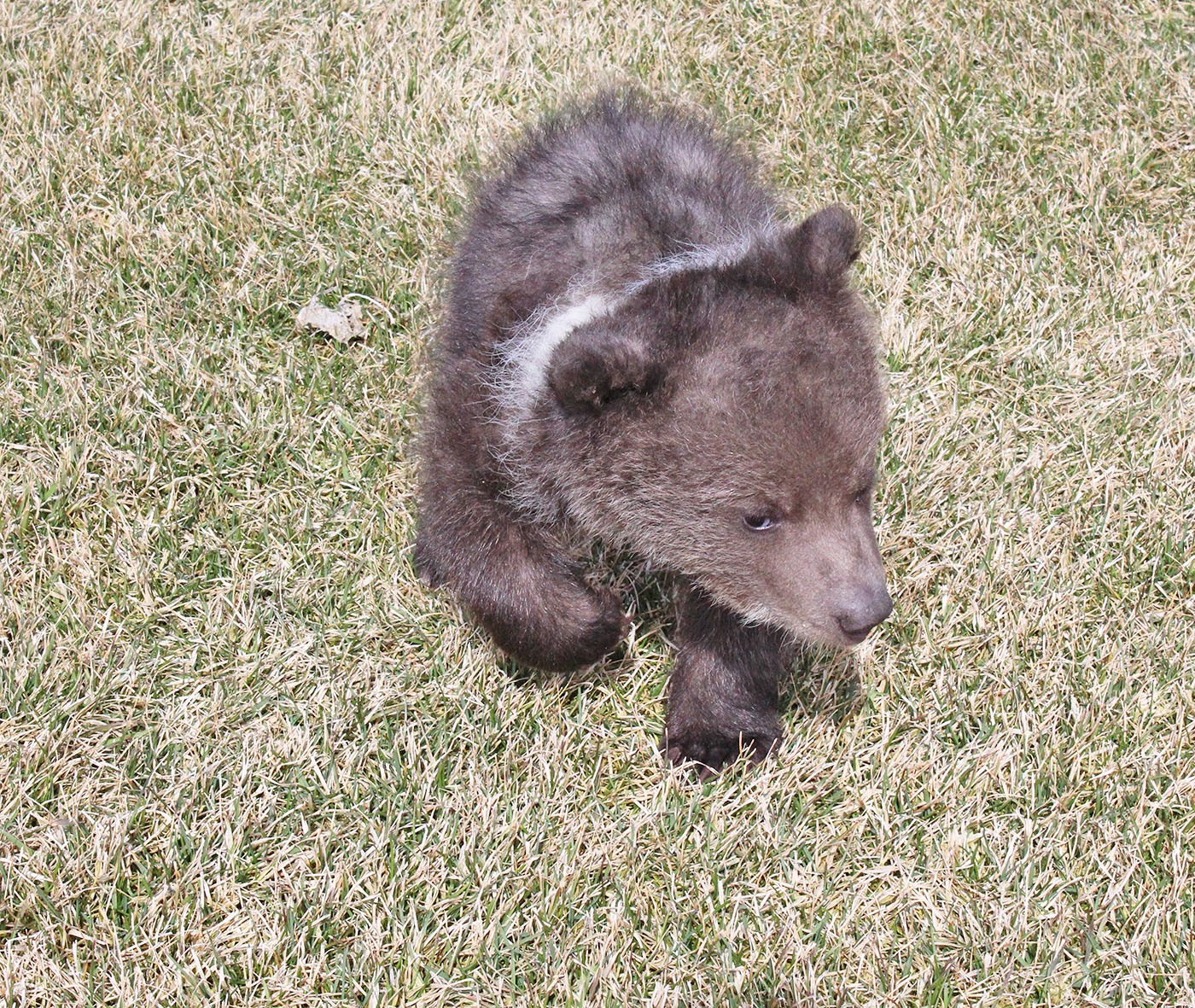Discovery Wildlife Park has a new addition to its family, a three-month-old Kodiak bear named Berkley.
Berkley was born on Jan. 17th and comes from a private facility in the United States. After being checked up on, it was later realized that Berkley’s sibling was no longer there.
The American facility later decided that she needed to be separated from her young mother, as the male was still present, which could cause danger to Berkley.
“The birth was very unexpected. It was a very young mother and so they didn’t actually expect for her to have cubs, so the male was still housed with the female, which normally if they’re going to have cubs you would not have the male in there,” said Serena Bos, head zookeeper and animal trainer.
She said it’s assumed that the male is the reason the other cub was gone, which is when the realization set in that they knew they had to take her or she would be destroyed.
Bos said lots of people wonder why they didn’t separate the male or why another route wasn’t taken. The answer was that it wasn’t for those at the Wildlife Park to decide.
“They’re big Kodiaks. Females can weigh up to 1,000 lbs and males can exceed 1,400 lbs, so putting up a temporary pen, that doesn’t just happen overnight. It’s a big ordeal,” said Bos.
She said those that had Berkley thought the best decision was to remove her.
“They knew what our facility does, that we take in orphans from fish and wildlife, we take in animals that are unwanted pets, confiscated illegally or even other zoo animals that just don’t have a home.”
Bos said it’s a big deal coming into Canada from the States, as the paperwork involved more than them getting a passport.
“It’s almost like us trying to get citizenship in another country really, and so we had months of paperwork to do and we were successful.”
Discovery Wildlife Park has had Berkley now for about two weeks and will keep her for the rest of her life. They haven’t started formal training with her just yet as she’s still a baby.
“It’s just like dealing with a one-year-old. You start doing manners and desensitization and natural bear behaviours. We work on digging in the mud and she hates bath time at this point, but she’s a Kodiak so she will love bath time one day,” said Bos.
Her temperament is generally good except when she’s overtired or hungry, similar to that of a human baby.
“If she’s overtired she is miserable. She turns into a real bear.”
Discovery Wildlife Park takes in orphans from fish and wildlife, other animal facilities that are closing down and unwanted pets, and they train their animals.
Bos said one of the main purposes for training is that it’s the highest form of enrichment you can give an animal in captivity.
“It’s like you or I. When we either go to school or we have a job, it gives us a purpose, it gives us a reason to wake up in the morning and physically do something.”
She said they also train for medical purposes.
“So just like you or I they are trained to pee in a cup to do blood draws.”
Discovery also takes part in a lot of bear research.
“As an animal facility or a zoo we always try to focus on conservation education, so we train for the public as well so that they can become more engaged with the animals, so that they can enjoy them and hopefully become passionate about them because the more connected you feel to an animal, the bigger difference hopefully you will make for a wild animal.”
carlie.connolly@reddeerexpress.com



